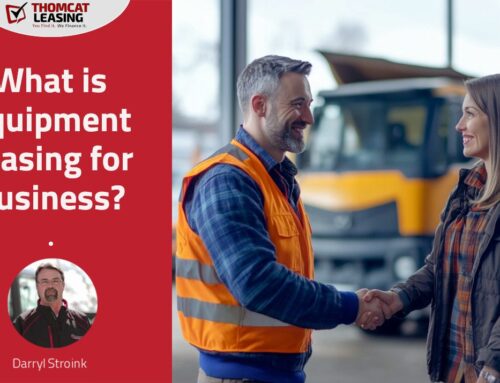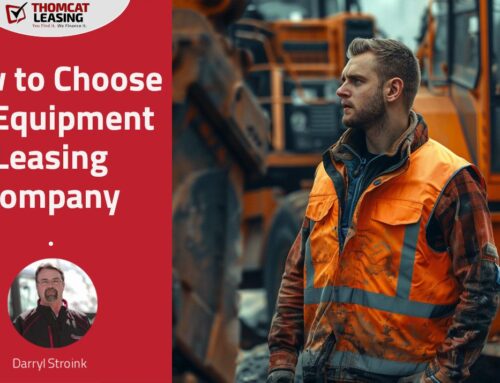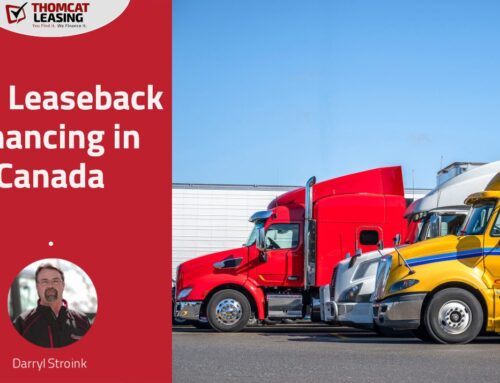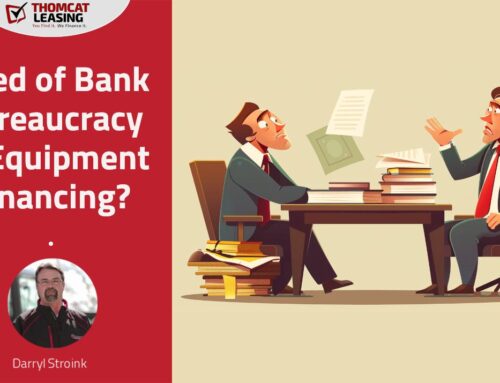Avoid Unnecessary Costs to Your Equipment Lease

You need to know what to expect up front. Being aware in advance of the various types of hidden fees that exist might help to protect you better financially. Here’s 4 commonly hidden fees you can expect, and how to deal with them fairly.
1. Documentation Fees
Banks and many lessors customarily utilize documentation fees in order to increase their rate of return on loan transactions. It’s often used to cover the administrative time spent processing your lease application. Depending on the transaction type and size a documentation fee on average might cost around $100 – $1000!
In general, you will likely have to pay a documentation fee – especially on large equipment leases with a high value. However, a rare few Canadian equipment leasing companies like Thomcat Leasing try to waive the fee altogether.
The best way to understand your equipment leasing costs is to ask about documentation fees up front. If you ask about it, the lessor must disclose the amount to you. So ask!
2. Application Fees
This is a charge just for applying for a lease! It’s quite possibly the most egregious charge you could face.
Application fees vary widely in price, and are charged to you by the loan broker or lender solely for the purpose of reviewing and then processing a loan application. This fee may also appear as a type of non-refundable deposit.
The bottom-line here is that application fees are an unnecessary cost to you. Do not pay an application fee. Find a different equipment lease provider if you are faced with this charge.
3. First and Last Payments
First and last monthly payments are collected in advance and are applied to your loan. It is customary to see this charge in the leasing of equipment – so don’t panic. Just be aware that this will be one of your up front costs.
None the less, you should make sure that these advanced payments are being applied to the lease. Some companies will instead hold these payments as a security deposit, in this the case you will want to obtain detailed documentation of this payment; receipts for the deposits.
4. Accountant Costs
Nobody wants to involve their accountant if they can avoid it. However, accountant costs may be something you incur if you are required to provide additional financial details to the lessor.
Additional company financial details may include financial history, financial statements, general ledger, balance sheets, income statements, value assets, or other limited notes.
Typically, if the loan is $20,000 or under, you won’t need additional financial details. However, some Canadian equipment leasing companies like Thomcat Leasing will only require these financials on leases totaling over $100,000.
Your equipment leasing company will request these details if necessary. Don’t be afraid to ask your lessor up front if you will need additional financial details for your proposed lease amount.
Other Costs You May Incur in the Purchasing and Leasing of Equipment
We’ve covered the most standard and typical costs you’ll run into. But whenever you are purchasing any equipment you should plan for a few unexpected costs.
Some other fees, charges, or costs you may come across are:
- Down Payment: This is entirely applied to the loan principle. Often, a lessor will provide a zero down option.
- Banking Fees: These are between you and your bank. You could be charged for your transactions.
- Legal Fees: If you want a lawyer or notary to review any of your legal obligations.
- Shipping Charges: Most likely, you’ll need to transport the purchased equipment to your location. Ask your lessor if they can roll the shipping costs into your lease payments.
- Customs Brokerage: If you buy equipment outside of Canada you’ll need to consider the costs of bringing it across the border. A customs broker can handle this for you; at a fee of course.
- Or any number of fees hiding behind different names.
A good equipment leasing company will make you aware of and help you navigate your total costs, fees, and shipping. Now you know when and what to ask!
Small Business Lease Guide
See our equipment leasing guide for more tips about how to get the leasing advantage for your business!





